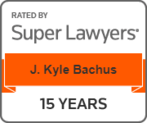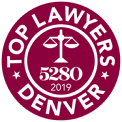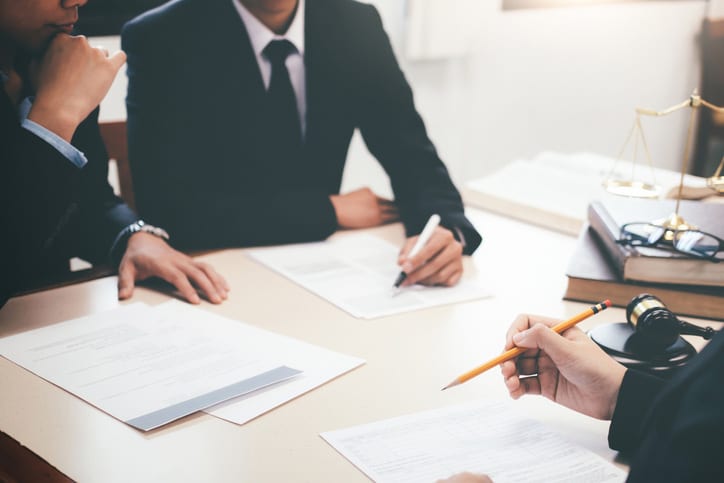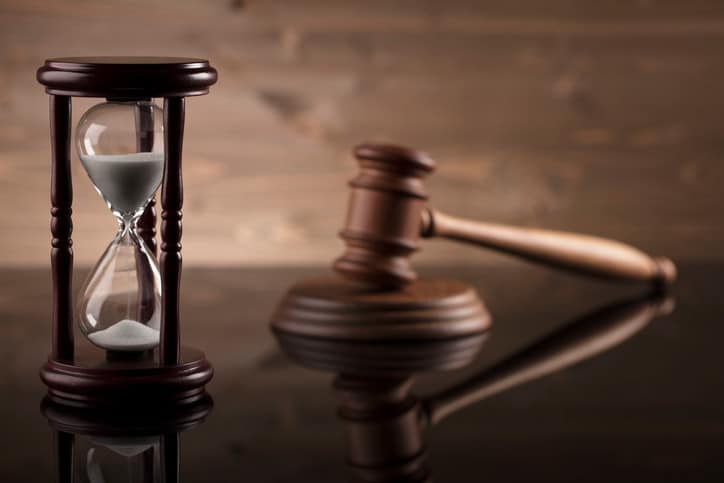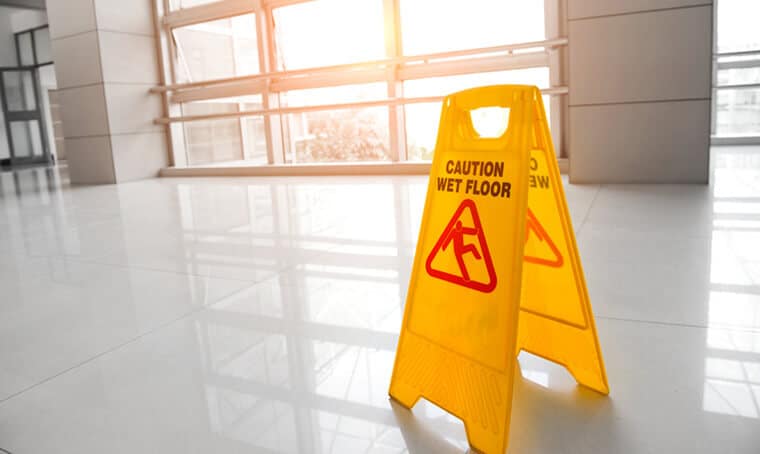HOW TO DETERMINE FAULT AFTER A SLIP AND FALL ACCIDENT
Determining fault in a slip and fall case is a question of understanding legal liability and applying the facts of the accident to the law. Colorado law gives a slip and fall victim the legal right to pursue compensation if another party is legally at fault for the slip and fall accident. To know if you have the right to bring a claim, you need to know how to determine fault. Our Colorado slip and fall attorneys explain how to determine fault for a slip and fall case.
Bachus & Schanker Wins – Over $1 Billion Recovered
- Determining Fault for a Slip and Fall Case
- Legal Liability in a Slip and Fall Claim
- Breach of Duty in a Slip and Fall Accident
- Colorado Law That Applies to a Slip and Fall Case
- When Determining Fault, Consider All Possible Parties
- Contact Our Colorado Slip and Fall Attorneys
- Related Slip And Fall Resources
- You Deserve Fair Compensation
Determining Fault for a Slip and Fall Case
Determining fault for a slip and fall case means examining the law and the actions of each party. For fault to apply in a slip and fall case, the other party must have a legal duty to the injured victim. The standard for a legal duty varies in slip and fall cases, depending on the reason that the victim was on the property in the first place.
When a duty applies, the other party must breach their duty in a way that causes harm to the victim. Determining fault for a slip and fall injury means looking at the legal requirements and applying the facts to the law. If all of the legal elements are met, the other party is at fault for the slip and fall injuries.
Legal Liability in a Slip and Fall Claim
Legal liability in a slip and fall requires proving a number of elements. All of the factors must be present for legal fault to apply in a slip and fall:
- Duty – A property owner has a legal obligation to people who enter onto their property. The amount of duty they have depends on the reason the person enters the property. In addition to the property owner, there may be other people or entities with a legal duty towards the victim.
- Breach of duty – For legal liability in a slip and fall to apply, the party with the duty must breach that duty or fail to live up to their legal requirements. In most slip and fall cases, breach of duty means failing to maintain the property in a reasonable condition.
- Causation – The party’s failure to live up to their duty of care must be the cause of the victim’s injuries. In other words, the slip and fall accident must occur because of the breach of duty. Usually, this is the fact that the slip and fall occurred because of the dangerous property condition.
- Damages – For fault to apply in a slip and fall accident, the victim must suffer harm in some way. That means that the victim must suffer physical injuries in the fall. Property damage may also count as damages, but most slip and fall cases are based on physical injuries. Without damages, there is no legal fault for a slip and fall.
Breach of Duty in a Slip and Fall Accident
In a slip and fall case, the fact that the victim slipped, fell, and has injuries is usually obvious. The most common question for determining legal fault for a slip and fall is determining whether there was a breach of duty. Legal fault hinges on whether the property owner took the proper care to keep their property safe. Whether they took the appropriate steps is a fact-specific question.
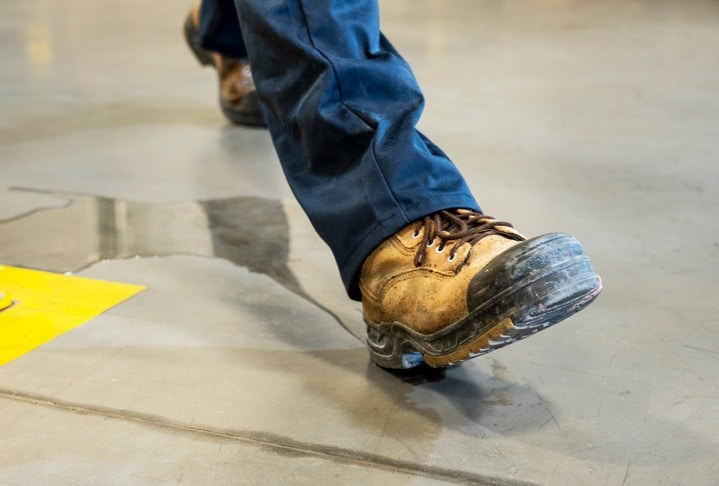
You may need to do some digging about what exactly the condition of the property was at the time of the accident. There may be some work to do to gather evidence to show what the property owner knew or should have known at the time of the accident. Determining whether the actions of the property owner pass legal muster is a fact-specific question that requires looking closely at who did what, who knew what, and how those facts compare to the applicable law. Each case is very specific and fact-intense. If the property owner fails to live up to their legal standards, they have fault for the slip and fall accident.
Colorado Law That Applies to a Slip and Fall Case
To determine if a property owner failed to live up to their legal standards in a slip and fall case, you need to know the law that applies. Colorado slip and fall laws come from both common law and statutory laws. Colorado courts have codified laws that apply in slip and fall accidents through cases like Vigil v. Franklin, 103 P.3d 322, 325 (2004)1. In addition, Colorado Revised Statutes 13-21-1152 states specific laws that apply to each category of property owner.
Colorado law 13-21-115 divides slip and fall liability into categories based on the reason that the person is on the property. The most strict law applies to people who are invited onto the property for the benefit of the property owner. This kind of person is called an invitee.
An invitee can bring a claim for compensation if they’re hurt because of a defect in the property that the property owner knew about or should have known about. The property owner must actively take steps to identify and fix dangers before they have a chance to hurt someone. If a person is on the property for mutual benefit (licensee), or if they are a trespasser, there are less stringent legal standards that apply. In Colorado, it is the judge that decides whether someone is an invitee, a licensee, or a trespasser.
When Determining Fault, Consider All Possible Parties
In a Colorado slip and fall claim, the responsible party may not always be the landowner. Usually, it’s the landowner that’s legally liable. Still, there may be other people who act negligently or a company that makes a defective product that can lead to a slip and fall. Determining fault in a slip and fall case requires looking at all of the people and entities involved to determine what caused the accident.
Contact Our Colorado Slip and Fall Attorneys
Our Colorado slip and fall attorneys have decades of experience helping clients determine fault for slip and fall accidents. Let our legal team help you determine fault for your slip and fall accident and what you might compensation you can recover for your claim. Your call is free and confidential. Call us today.
Sources
1Vigil v. Franklin, 103 P.3d 322
2C.R.S. 13-21-115. https://advance.lexis.com/documentpage/?pdmfid=1000516&crid=d1dafe46-46dd-45af-a7f2-5935e8ecc1d9&config=014FJAAyNGJkY2Y4Zi1mNjgyLTRkN2YtYmE4OS03NTYzNzYzOTg0OGEKAFBvZENhdGFsb2d592qv2Kywlf8caKqYROP5&pddocfullpath=%2Fshared%2Fdocument%2Fstatutes-legislation%2Furn%3AcontentItem%3A5X45-0DF1-JS0R-20R2-00008-00&pddocid=urn%3AcontentItem%3A5X45-0DF1-JS0R-20R2-00008-00&pdcontentcomponentid=234176&pdteaserkey=sr0&pditab=allpods&ecomp=h567kkk&earg=sr0&prid=ac588b2b-2027-417b-a4de-c39efc67f073.
Related Slip And Fall Resources
You Deserve Fair Compensation
Don’t let the insurance companies intimidate you into accepting less than you deserve. We’re ready to fight for you.

Written and Legally Reviewed By: Kyle Bachus
![]() 4.6 ★★★★★ 1,461 Google Reviews
4.6 ★★★★★ 1,461 Google Reviews
Kyle is a member of the Colorado and Florida Bar associations and has served on the Board of Directors of the Colorado Trial Lawyers Association for more than twenty years in total. Over the years, Kyle has achieved justice for many clients. He has served on numerous committees and repeatedly won recognition from his peers at both the state and national level. He is proud of the role he has played in the passage of state and national legislation to protect consumers and is a frequent speaker and guest lecturer.
